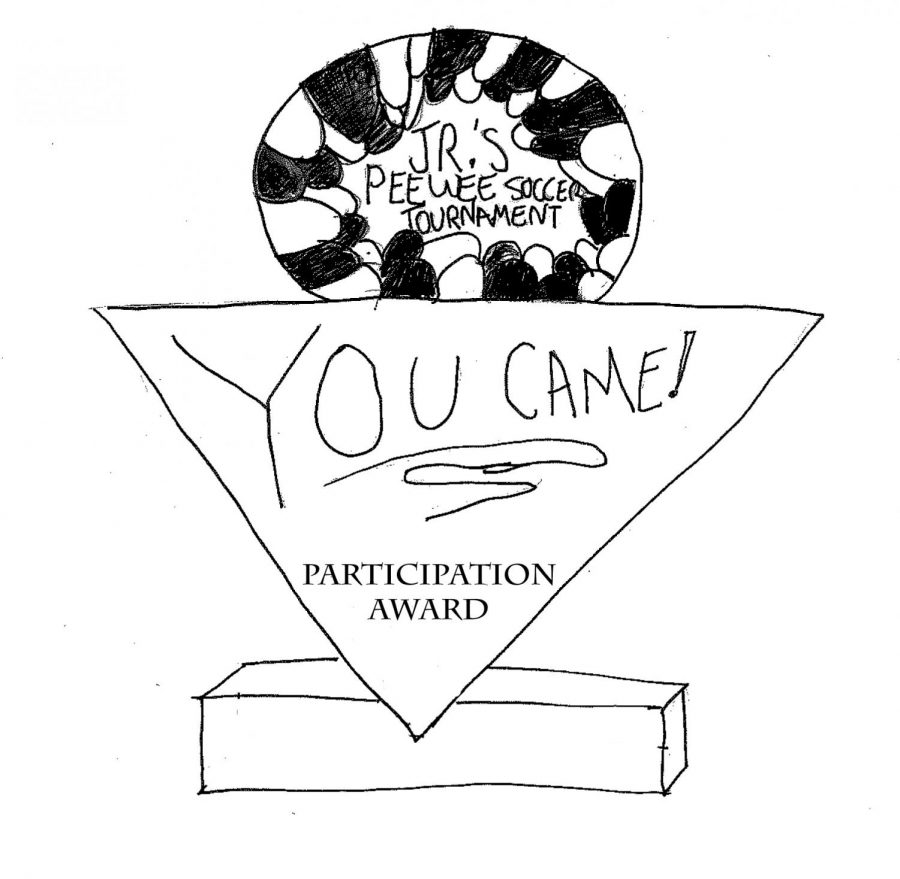Adults’ Thick Skulls and Kids’ Thin Skin Makes Generation of Snowflakes
Last week during an Pod Meeting, all attending children were forced to sit on the floor because apparently using a chair would make the children that didn’t get a chair feel unequal. We were told that using a chair would make our classmates feel below us and make them somehow think that their lack of a chair was because of character flaws, not because other children got there first. A chair. These adults believed that because little Timmy didn’t get his chair, he would look in the mirror and think less of himself because of it. Because of a chair. The concept is laughable, really, but we see it more and more every day.
From school uniforms–designed to make sure kids look the same–to ensuring every kid on the football team gets twelve plays so they don’t feel inferior, the list goes on and on. These may seem like simple, harmless things, but they are dangerous. The kids who are ill-prepared for a contact sport like football could get themselves or their teammates hurt. The kid who has to wear a school uniform is no longer free to express himself, and the kid that is now sitting on the floor rather than his deserved chair is uncomfortable. All because of the insane idea that the child on the ground is going to hate himself for it.
The issue here is that there’s no clear culprit. True, most kids won’t be offended by their peer’s chair, but a select few snowflakes may be vocal enough to create the stereotype.
So are adults to blame for believing the stereotype? Or are the snowflakes to blame for creating the stereotype in the first place. I believe it’s the dangerous combination of the two.
To explain this, I turned to a study done by Roy F. Baumeister, Jennifer D. Campbell, Joachim I. Krueger, and Kathleen D. Vohs regarding self-esteem. In their section concerning intervention, they found many issues with school and helicopter parents attempting to remove challenges from their children’s lives.
You need failure to grow. Baumeister and the other authors found that schools often confuse correlation and causation. Schools think that by making a kid start the day with “I love myself because…” and other empty ‘lessons’ the kids will grow up more confident. Some schools went a step farther by removing competition from schools.
Suddenly there’s no winner of the kickball game because the losing team is going to hate themselves for losing. There’s no honor roll in high schools because the kid in C level classes will feel bad. Maybe they should’ve studied. Maybe their parents should have sat down and done their homework with them instead of attending the anti-honor roll protest while their child is at home helplessly staring at his or her homework.
But these protests wouldn’t exist without the kid down the street in all C level classes complaining that his friend is proud of his academic achievements. We should acknowledge that everyone has strengths and weaknesses. But now there’s no more kickball because someone on the losing team decided to complain to mommy when he lost by 8. Now nobody can sit on the floor because someone complained when they were too late to get a chair. The whole concept is insanity.
The kid that lost in kickball could be amazing at basketball. Or the kid with all A’s and is on the honor roll could have issues with confidence. That doesn’t mean teachers should go forcing kids to sit with them at lunch, but rather that we should all accept and celebrate our differences.
As written in the article “Why Today’s Children (And Young Adults) Are More Sensitive and Fragile Than Past Generations,” the authors write, “Resilience isn’t something that magically happens once you turn a certain age. It’s something you develop by dealing with the small disappointment of being the first kid eliminated from musical chairs or the last kid picked in the kickball game.”
Without a winner in the kickball game, kids are now playing ‘just for fun.’ But winning is the best part of kickball. You don’t see NFL players crying when the other team does a celebration in the endzone because they understand winning, losing, scoring, and getting scored on are all parts of the game. Why is it that these children can’t accept that their friends work harder in class than them. Why can’t these children let there be a winner and a loser?
And why can’t I sit in my darn chair?



